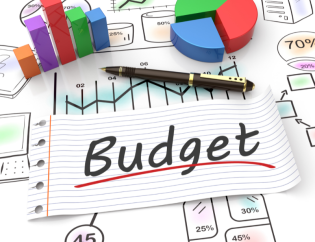Kurt Muscat, Senior - Executive Advisory Services at EMCS commented, “While it may seem like lower prices are good, deflation can ripple through the economy. Often deflation causes high unemployment, and can turn a bad situation, such as a recession, into a worse situation, such as a depression.”
In August 2020, a month in which COVID-19 containment measures continued to be lifted, Euro area annual inflation was calculated to be -0.2%, down from 0.4% in July according to Eurostat, the statistical office of the European Union. Looking at the main components of euro area inflation, food, alcohol & tobacco experienced the highest annual inflation rate in August (1.7%, compared with 2.0% in July), followed by services (0.7%, compared with 0.9% in July), non-energy industrial goods (-0.1%, compared with 1.6% in July) and energy (-7.8%, compared with -8.4% in July).
Malta was one of 6 countries that registered positive inflation while the remaining 13 countries experienced deflation. In fact, Malta registered an inflation rate of 0.7% which although positive it is much lower than the inflation target of 2%.
Deflation slows down economic growth. It normally takes place during times of economic uncertainty when the demand for goods and services is lower, along with higher levels of unemployment.
Deflation can lead to unemployment because when companies make less money, they react by cutting costs in order to survive. This includes closing stores and laying off workers. These workers then have to decrease their own spending, which leads to even less demand and more deflation and causes a deflationary spiral that is hard to break.
A deflationary spiral can occur during periods of economic crisis, such as a recession or depression, as economic output slows and demand for investment and consumption dries up. This may lead to an overall decline in asset prices as producers are forced to liquidate inventories that people no longer want to buy. Consumers and businesses alike begin holding on to liquid money reserves to cushion against further financial loss. As more money is saved, less money is spent, further decreasing aggregate demand. At this point, people's expectations regarding future inflation are also lowered and they begin to reserve money. Consumers subsequently have less incentive to spend money today when they can reasonably expect that their money will have more purchasing power tomorrow.
Despite the higher deflation risk in Europe, the OECD does not expect the euro area to fall into deflation. The European Central Bank (ECB) is committed to use unconventional instruments within its mandate to avoid a prolonged period of low inflation, and the measures it has announced since June should help. The ongoing shift in monetary policy in the United States, combined with a move towards greater easing in the euro area, has already resulted in a depreciation of the euro against the dollar, and such depreciation puts upward pressure on the price level in Europe. In addition, the drag on demand from fiscal consolidation is now easing. As demand strengthens, inflation should turn back up towards the ECB’s target of just under 2%, although it is likely to remain well below that target for some time yet.










